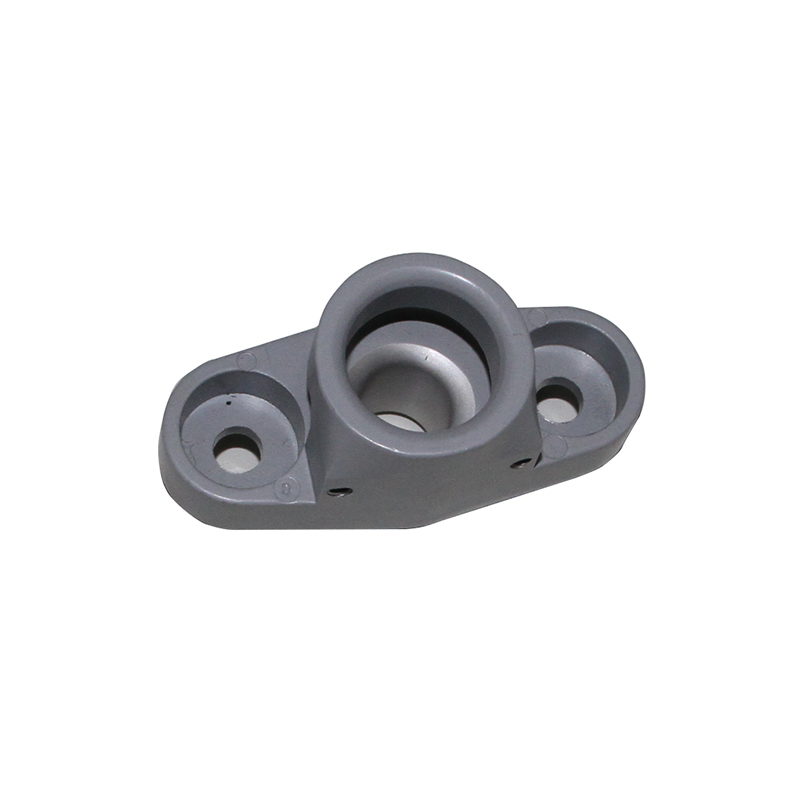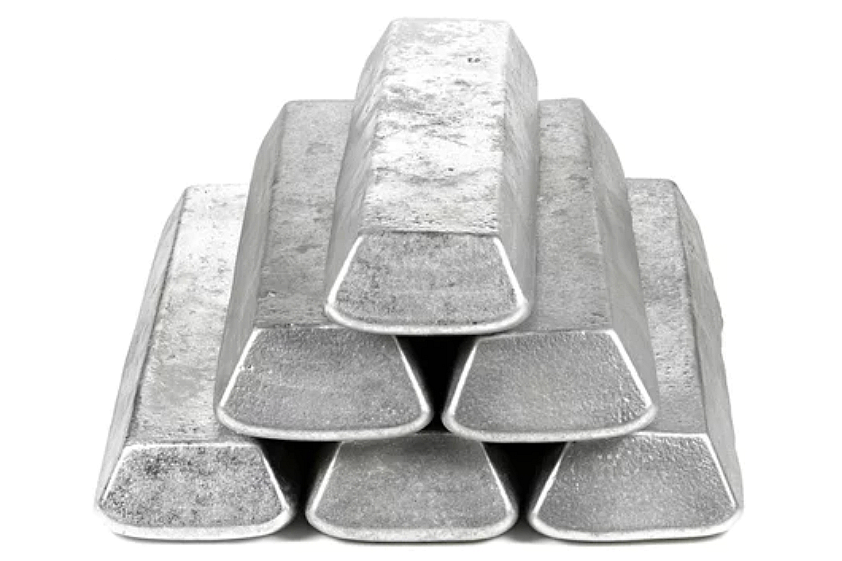Aluminum Casting Company solutions for complex manufacturing projects
Wiki Article
Exploring the Innovative Procedures Behind Modern Light Weight Aluminum Foundry Operations
Modern light weight aluminum shop operations are going through considerable transformation. Automation and AI are improving production techniques, boosting both efficiency and precision. The combination of 3D printing is streamlining mold development, while sustainability methods are coming to be extra necessary. Each of these advancements plays a crucial function in redefining the sector. The effects of these changes expand beyond simple manufacturing effectiveness. What opportunities and difficulties exist ahead for aluminum shops in this advancing landscape?The Role of Automation in Light Weight Aluminum Foundries

Automation contributes to boosted safety and security standards within the shop environment. By transferring hazardous tasks to makers, human workers can concentrate on managerial functions and quality control, lessening the risk of accidents. On top of that, data analytics stemmed from automated processes supply important insights into operational efficiency, causing far better decision-making and constant renovation. As the need for light weight aluminum products grows, the fostering of automation modern technologies will likely broaden, further changing the landscape of light weight aluminum factory procedures.
Developments in Casting Technologies
Current developments in casting technologies are changing aluminum shop operations. Developments such as 3D printing assimilation, progressed alloy solutions, and automated process optimization are improving efficiency and item quality. These developments are critical in fulfilling the progressing demands of the sector.3D Printing Assimilation
Incorporating 3D printing technology right into aluminum foundry operations has transformed typical casting techniques, boosting both efficiency and accuracy. This innovative technique enables the quick manufacturing of intricate mold and mildews and cores, considerably lowering preparations and material waste. By making use of additive manufacturing, shops can produce intricate geometries that were difficult or formerly tough to achieve with traditional methods. The versatility of 3D printing also enables fast layout modifications, fostering a much more nimble production process. On top of that, this assimilation supports the use of lightweight structures, which is significantly essential in markets such as automobile and aerospace. As aluminum foundries remain to adopt 3D printing, they place themselves at the forefront of technical innovation, driving enhancements in item high quality and operational capacities.Advanced Alloy Formulations
The advancement of innovative alloy formulas has actually greatly boosted casting modern technologies in aluminum foundry operations. These formulas incorporate numerous components, such as silicon, magnesium, and copper, to boost mechanical properties and thermal resistance. By tailoring the structure of aluminum alloys, manufacturers can accomplish details efficiency attributes that satisfy the needs of diverse applications, from automotive components to aerospace structures. The use of innovative alloys likewise adds to reduced weight and raised toughness, which are vital aspects in contemporary design. Furthermore, innovations in alloy development make it possible for better fluidity during casting, causing boosted surface area coatings and decreased problems. On the whole, progressed alloy formulas stand for a significant leap onward, positioning aluminum foundries to satisfy the developing demands of numerous markets properly.Automated Process Optimization
Advancements in casting modern technologies have actually paved the method for automatic procedure enhancement in aluminum foundry operations. By incorporating advanced software and real-time data analytics, factories can now improve manufacturing procedures and boost quality control. Automated systems check variables such as temperature level, cooling, and stress prices, enabling prompt changes that minimize issues and waste. In addition, artificial intelligence algorithms assess historical performance information to anticipate perfect setups, thus increasing effectiveness and reducing cycle times. Robotics additionally play a significant role, handling repeated jobs that improve security and accuracy. On the whole, these advancements not only drive operational effectiveness yet likewise allow foundries to satisfy the growing need for top notch aluminum elements in different sectors.Smart Manufacturing and Industry 4.0 Assimilation
The assimilation of Smart Manufacturing and Industry 4.0 within light weight aluminum shops is transforming functional effectiveness. By leveraging IoT modern technologies, automation, and robotics, foundries can enhance production procedures and minimize downtime. Furthermore, information analytics supplies important insights that enhance decision-making and drive continual enhancement.IoT in Foundry Operations
As makers significantly welcome the Internet of Points (IoT), factory operations are experiencing a transformative change in the direction of clever production and Sector 4.0 integration. aluminum casting. IoT technologies make it possible for real-time information collection and evaluation, enhancing decision-making processes and functional effectiveness. Sensing units and connected gadgets keep track of tools efficiency, material use, and ecological problems, permitting aggressive maintenance and resource optimization. This connectivity cultivates an extra dexterous production atmosphere, where adjustments can be made quickly in response to market demands. In addition, IoT facilitates enhanced traceability and quality assurance, as information from the whole manufacturing cycle can be conveniently accessed and analyzed. Overall, the combination of IoT in shop operations significantly boosts productivity and drives innovation in aluminum manufacturing processesAutomation and Robotics Combination
Automation and robotics integration is transforming aluminum foundry procedures by enhancing performance and precision. This transformative strategy streamlines processes such as molding, pouring, and completing, decreasing human mistake and raising output consistency. By utilizing innovative robot systems, foundries can attain greater manufacturing rates while preserving strict high quality standards. Automated systems likewise make it possible for real-time surveillance and flexible control, permitting swift changes to production criteria. Furthermore, the integration important source of robotics reduces labor prices and reduces safety and security threats linked with hands-on handling of liquified steel. As factories accept wise manufacturing concepts inherent in Sector 4.0, the harmony in between automation and robotics solidifies their competitive edge, paving the way for like this lasting growth and technology in the aluminum casting sector.Information Analytics for Performance
Using data analytics significantly enhances performance within light weight aluminum shop operations, lining up with smart production and Sector 4.0 concepts. By leveraging real-time information collection and analysis, shops can check manufacturing processes, anticipate tools failings, and enhance resource allocation. This data-driven method promotes informative decision-making, enabling supervisors to boost and identify traffic jams process. Furthermore, predictive analytics empowers foundries to prepare for market demands, consequently lowering waste and ensuring prompt product delivery. Integration of data analytics with IoT tools enhances operational visibility, fostering a positive maintenance society. Ultimately, executing these sophisticated analytical strategies not only enhances productivity however also drives development, positioning light weight aluminum foundries to meet the advancing demands of the sector while preserving affordable edges in a rapidly changing landscape.Sustainable Practices in Aluminum Spreading
While the light weight aluminum spreading industry has actually typically dealt with environmental difficulties, numerous foundries are now embracing lasting methods to reduce their effect (aluminum casting). A considerable focus has actually been on reusing light weight aluminum scrap, which not just reduces waste yet additionally saves power contrasted to key aluminum production. Cutting-edge melting innovations, such as induction heating systems, improve energy effectiveness and lower greenhouse gas emissionsIn addition, shops are carrying out closed-loop water supply to decrease water usage and lower thermal contamination. The usage of environment-friendly binders in mold-making procedures is gaining traction, further reducing hazardous exhausts.
Some centers are spending in renewable energy sources to power operations, straightening with global sustainability objectives. By incorporating these techniques, the light weight aluminum spreading market is evolving towards a much more ecologically accountable future, demonstrating that financial development can exist together with ecological stewardship - Aluminum Foundry. These efforts show a dedication to sustainability and the significance of ecological liability in manufacturing
Quality Assurance Innovations
As the aluminum casting sector developments towards sustainability, the importance of quality assurance advancements comes to be increasingly apparent. Modern aluminum factories are embracing sophisticated technologies to improve their quality control procedures. Methods such as real-time monitoring and information analytics allow makers to spot problems and inconsistencies early in the manufacturing cycle. Carrying out computerized examination systems outfitted with machine learning formulas warranties that products meet rigid quality requirements while lessening human mistake.Furthermore, the integration of non-destructive testing approaches, such as radiographic and ultrasonic assessments, supplies much deeper insights right into the honesty of spreadings without damaging the material. These advancements not just enhance item integrity however additionally decrease waste, aligning with sustainability goals. Additionally, the fostering of standard top quality structures helps improve operations across different shops, guaranteeing uniformity in outcome. Collectively, these advancements are improving find more top quality control, fostering a society of quality within the aluminum casting field.
Future Patterns in Light Weight Aluminum Shop Procedures
What innovations lie in advance for light weight aluminum shop operations? The future of light weight aluminum foundries is poised for improvement through advancements in automation, expert system, and lasting techniques. The combination of robotics and automated systems is anticipated to enhance efficiency and precision in the spreading procedures, reducing human error and labor costs. In addition, AI-driven analytics will certainly enable real-time tracking and anticipating maintenance, optimizing functional efficiency and decreasing downtime.Sustainability continues to be a centerpiece, with factories progressively adopting green techniques, such as using recycled light weight aluminum and creating low-emission melting modern technologies. Advancements in 3D printing are likewise expected to reinvent mold-making, allowing for intricate geometries and minimized product waste. As the market embraces digitalization, data-driven decision-making will certainly come to be essential, making it possible for shops to respond quickly to market needs. Collectively, these trends promise to redefine light weight aluminum factory procedures, making them extra efficient, sustainable, and versatile to future challenges.

Regularly Asked Concerns
What Safety Steps Are Carried Out in Aluminum Foundry Operations?
Light weight aluminum factory operations execute various safety and security measures, consisting of individual protective tools, ventilation systems to manage fumes, normal safety and security training, emergency situation action plans, and strict surveillance of temperature level and equipment to stop crashes and assurance employee security.How Do Factories Handle Workforce Training for New Technologies?

What Products Are Frequently Recycled in Aluminum Foundries?
Light weight aluminum foundries generally recycle scrap light weight aluminum, including post-consumer items like drink canisters, automotive parts, and building materials. This recycling procedure reduces waste and preserves sources, adding to an extra sustainable light weight aluminum manufacturing sector.Exactly How Does Aluminum Spreading Influence the Atmosphere?
Aluminum casting effects the setting with energy-intensive procedures, greenhouse gas discharges, and prospective neighborhood pollution. Advancements in reusing and sustainable techniques can minimize these effects, advertising a more eco-friendly method to light weight aluminum manufacturing.What Are the Common Lead Times for Aluminum Spreading Projects?
Normal lead times for light weight aluminum casting jobs differ substantially, normally varying from two to six weeks. Factors influencing these timelines include complexity, order dimension, and material schedule, influencing overall manufacturing timetables in factory procedures.
Automation significantly plays a necessary duty in light weight aluminum factories, boosting efficiency and precision in the manufacturing process. Innovations in casting technologies have actually paved the method for computerized process enhancement in aluminum factory procedures. Taking advantage of information analytics considerably enhances effectiveness within light weight aluminum shop operations, aligning with wise production and Sector 4.0 concepts. A considerable focus has actually been on reusing aluminum scrap, which not only minimizes waste yet likewise saves power contrasted to main aluminum manufacturing. Light weight aluminum shops commonly reuse scrap aluminum, including post-consumer products like drink canisters, automobile parts, and building materials.
Report this wiki page